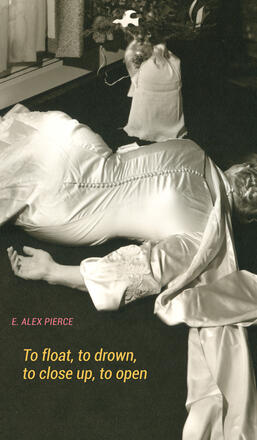
Description
In this collection, E. Alex Pierce enters the territory of memory embedded in landscape where “language tied to the land” evokes the cadence of tidal rivers and creates a fluid world. She traces the fragmented childhood beginnings that lead to the formation of a young artist who moves from music, through theatre, to poetry. The passionate relationships and complex juxtapositions of art and performance that form an artist’s life find voice here in the symphonic structure of the long poem, the provocative individual prose poems, and the final stretched sonnet sequence that interrogates a lost love, “Still. Shimmering in the morning wind. And gone.” These fiercely poised works are layered and rich, with sensuous attention to line and breath: a major work from an accomplished poet.
And in that space of summer afternoon, the image born of sound
and light inhabits all her blood and bone, the mind ignites. She sees
the fire – space for her is stage now, theatre is the flame. She sees it
burning all the way back to the Sable River, the lamp, the voices,
the two old people, in the dark,
without wall or roof or post
or beam –
and even as her father buries refuse
in the cellar hole, turns all this under, she
seizes it, picks up her torch,
and runs.
—from the title poem